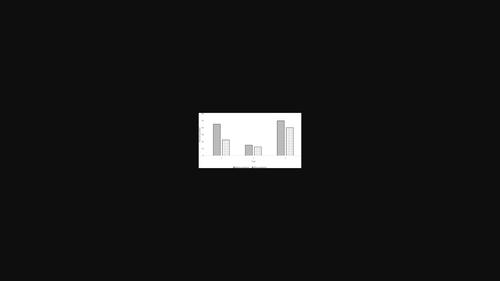当前位置:
X-MOL 学术
›
J. Food Saf.
›
论文详情
Our official English website, www.x-mol.net, welcomes your
feedback! (Note: you will need to create a separate account there.)
Practical application of bacteriophage in food manufacturing facilities for the control of Listeria sp.
Journal of Food Safety ( IF 1.9 ) Pub Date : 2020-11-30 , DOI: 10.1111/jfs.12871 Robert G. Reinhard 1 , Robin M. Kalinowski 2 , Peter W. Bodnaruk 2 , Joseph D. Eifert 1 , Renee R. Boyer 1 , Susan E. Duncan 1 , R. Hartford Bailey 3
Journal of Food Safety ( IF 1.9 ) Pub Date : 2020-11-30 , DOI: 10.1111/jfs.12871 Robert G. Reinhard 1 , Robin M. Kalinowski 2 , Peter W. Bodnaruk 2 , Joseph D. Eifert 1 , Renee R. Boyer 1 , Susan E. Duncan 1 , R. Hartford Bailey 3
Affiliation

|
Listeria monocytogenes is a foodborne pathogen with the ability to persist and form biofilm matrices in processing environments of food manufacturing facilities. Bacteriophages are bacterial viruses with host specific lethality. Published research on the application of phage to control Listeria sp. in manufacturing environments is limited. In this study, we have assessed the capacity of bacteriophage P100 (Listex™) to reduce incidence of Listeria sp. in the ready-to-eat (RTE) environment of refrigerated (4°C) and ambient (20°C) temperature facilities using two different application strategies. A moderate application applied as a single treatment every 24 hr over three days (2 × 107 PFU/ml) and an intensified application applied once every 6 hr over a 24 hr period (1 × 108 PFU/ml). Environmental nonfood contact surface (NFCS) samples were collected and analyzed for the presence of Listeria sp. before and after treatment. When the moderate treatment protocol was applied the incidence of positives decreased from 51.3 to 17.5% in the 4°C environment and from 67.5 to 23.1% in the 20°C production area. For the intensified phage treatment method, the initial positive rate in the 4°C environment ranged from 5 to 47.5%, with an overall 43% reduction in Listeria sp. In the 20°C facility, initial environmental Listeria sp. ranged from 15 to 50%, with an overall reduction of 32% after treatment with phage P100. Data indicate the application of Listeria specific phage P100 in RTE food production environments by either the moderate or intensified application method can reduce incidence and be considered an additional intervention strategy for controlling this pathogen on NFCS.
中文翻译:

噬菌体在食品生产设施中用于控制李斯特菌属的实际应用。
单核细胞增生李斯特氏菌是一种食源性病原体,能够在食品制造设施的加工环境中持续存在并形成生物膜基质。噬菌体是具有宿主特异性杀伤力的细菌病毒。发表了应用噬菌体控制李斯特菌的研究。在制造环境中是有限的。在这项研究中,我们评估了噬菌体 P100 (Listex™) 降低李斯特菌发生率的能力。在冷藏 (4°C) 和环境 (20°C) 温度设施的即食 (RTE) 环境中,使用两种不同的应用策略。三天内每 24 小时一次适度施用(2 × 10 7PFU/ml) 和强化应用,在 24 小时内每 6 小时应用一次 (1 × 10 8 PFU/ml)。收集环境非食品接触表面 (NFCS) 样品并分析是否存在李斯特菌。治疗前后。当应用适度处理方案时,阳性发生率在 4°C 环境中从 51.3% 下降到 17.5%,在 20°C 生产区域中从 67.5% 下降到 23.1%。对于强化噬菌体处理方法,4°C 环境中的初始阳性率在 5% 到 47.5% 之间,李斯特菌总体减少 43% 。在 20°C 设施中,初始环境李斯特菌sp。范围从 15% 到 50%,用噬菌体 P100 处理后总体减少了 32%。数据表明李斯特菌特异性噬菌体 P100 通过适度或强化的应用方法在 RTE 食品生产环境中的应用可以降低发病率,并被认为是控制 NFCS 上这种病原体的额外干预策略。
更新日期:2020-11-30
中文翻译:

噬菌体在食品生产设施中用于控制李斯特菌属的实际应用。
单核细胞增生李斯特氏菌是一种食源性病原体,能够在食品制造设施的加工环境中持续存在并形成生物膜基质。噬菌体是具有宿主特异性杀伤力的细菌病毒。发表了应用噬菌体控制李斯特菌的研究。在制造环境中是有限的。在这项研究中,我们评估了噬菌体 P100 (Listex™) 降低李斯特菌发生率的能力。在冷藏 (4°C) 和环境 (20°C) 温度设施的即食 (RTE) 环境中,使用两种不同的应用策略。三天内每 24 小时一次适度施用(2 × 10 7PFU/ml) 和强化应用,在 24 小时内每 6 小时应用一次 (1 × 10 8 PFU/ml)。收集环境非食品接触表面 (NFCS) 样品并分析是否存在李斯特菌。治疗前后。当应用适度处理方案时,阳性发生率在 4°C 环境中从 51.3% 下降到 17.5%,在 20°C 生产区域中从 67.5% 下降到 23.1%。对于强化噬菌体处理方法,4°C 环境中的初始阳性率在 5% 到 47.5% 之间,李斯特菌总体减少 43% 。在 20°C 设施中,初始环境李斯特菌sp。范围从 15% 到 50%,用噬菌体 P100 处理后总体减少了 32%。数据表明李斯特菌特异性噬菌体 P100 通过适度或强化的应用方法在 RTE 食品生产环境中的应用可以降低发病率,并被认为是控制 NFCS 上这种病原体的额外干预策略。









































 京公网安备 11010802027423号
京公网安备 11010802027423号